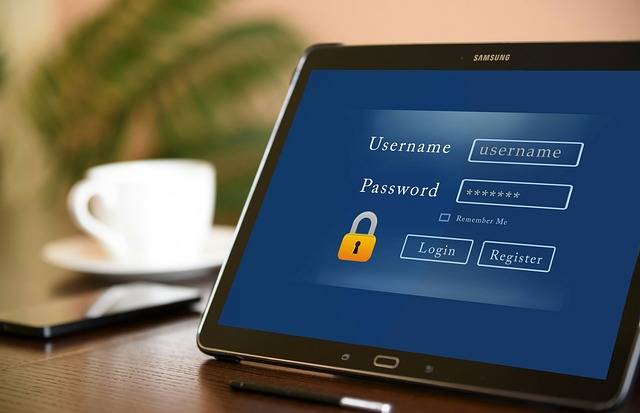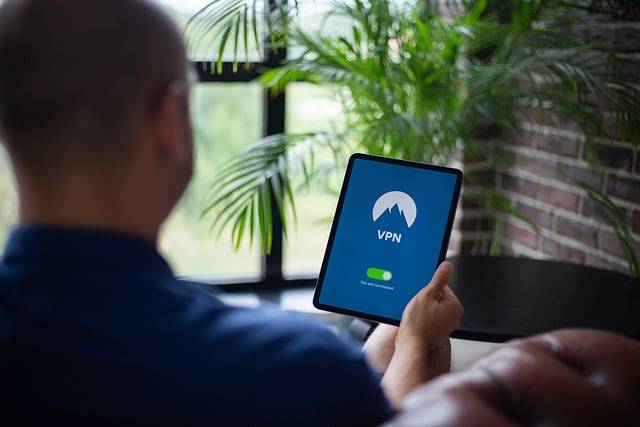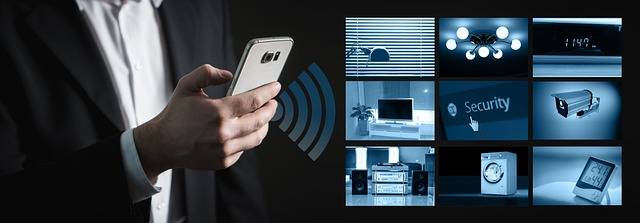Are you worried about your device’s unique identifier, the IMEI number, being exposed?
If so, you may be wondering if a virtual private network (VPN) can help protect it. In this blog article, we will explore the mystery of whether or not VPNs can hide your IMEI and what other measures you should take to keep your phone secure.
We’ll look at the pros and cons of hiding your IMEI with a VPN as well as what else you need to know about protecting yourself from prying eyes. So read on for an in-depth exploration into understanding how to mask your device’s IMEI number!
Table of contents: Can VPN Hide IMEI
- Uncovering the Mystery: Can VPNs Hide Your IMEI?
- Is Your IMEI Safe from Prying Eyes with a VPN?
- The Pros and Cons of Hiding Your IMEI with a Virtual Private Network
- What You Need to Know About Protecting Your Device’s Unique Identifier
- Understanding How to Keep Your Phone Secure by Masking its IMEI Number
When it comes to online security, many people are turning to virtual private networks (VPNs) for added protection. But can a VPN hide your IMEI number?
The short answer is yes, but there are some important caveats that you should be aware of before relying on this form of privacy.
Your International Mobile Equipment Identity (IMEI) number is a unique identifier assigned to every mobile device. Carriers and law enforcement agencies use it to track the location and usage of devices connected to their network.
This means that if someone knows your IMEI number, they can potentially find out where you’ve been or what activities you’ve been engaging in while using your phone or tablet.
Fortunately, VPNs provide an extra layer of security by encrypting all traffic between your device and the internet – including any requests for information about your IMEI number from third parties like law enforcement agencies or carriers. By routing all data through its secure servers, a VPN effectively hides the identity and activity associated with any given device from prying eyes – making it much harder for anyone trying to trace back its origin or usage patterns over time.
However, it’s important to note that not all VPN services offer complete anonymity when it comes to protecting users’ identities online; some may still collect basic user data such as IP addresses which could be used in conjunction with other identifying information such as an IMEI number if needed by authorities investigating criminal activity involving said user’s device(s).
Therefore we recommend doing thorough research into different providers before settling on one so as not only to ensure maximum privacy but also peace of mind knowing that no personal details will ever be shared without explicit permission first being granted by the user themselves!
Uncovering the Mystery: Can VPNs Hide Your IMEI?
Uncovering the mystery of whether or not VPNs can hide your IMEI is a question that has been asked for many years. The answer to this question is complicated and depends on several factors.
First, it’s important to understand what an IMEI is and why it matters when considering if a VPN can hide it. An International Mobile Equipment Identity (IMEI) number is a unique code assigned to every mobile device which identifies the device on cellular networks.
This means that any activity you do with your phone can be tracked back to you through your IMEI number. The next factor in determining if a VPN can hide your IMEI comes down to how secure the connection between you and the server of the VPN provider actually is.
Suppose there are any weak points in security. In that case, there’s always the potential for someone else (like law enforcement or hackers) to access information about who owns certain devices by tracking their associated IMEIs.
Finally, another factor that must be considered when trying to determine if using a VPN will help protect against having one’s identity revealed via their phone’s unique identifier like an IMEI number –is whether or not they have enabled additional features such as “kill switch” protection which helps ensure all data traffic stops should something happen where the connection with the server gets lost unexpectedly.
Overall, while using a good quality virtual private network service may provide some added layer of security from having one’s identity revealed via their phone’s unique identifier like an International Mobile Equipment Identity (IMEI), ultimately, no system offers 100% guarantee against such risks so caution should still be taken even when taking advantage of these services!
Is Your IMEI Safe from Prying Eyes with a VPN?
When it comes to protecting your privacy online, one of the most important things you can do is make sure that your IMEI (International Mobile Equipment Identity) number is safe from prying eyes. Your IMEI number is a unique identifier assigned to each mobile device and can be used by law enforcement or malicious actors to track your location and activities.
Thankfully, there are ways you can protect yourself from this type of surveillance – namely, using a VPN (Virtual Private Network). A VPN works by encrypting all data sent between your device and the internet so that no one else can see what you’re doing or where you’re going.
This means that even if someone were able to get their hands on your IMEI number, they wouldn’t be able to use it for tracking purposes because all the traffic would be encrypted. Additionally, many VPNs also offer additional features, such as IP address masking, which further enhances security by hiding your real IP address behind an anonymous proxy server.
Using a reliable and secure VPN service will ensure that not only is your IMEI safe from prying eyes but also any other sensitive information, such as passwords or financial details, when browsing online. Not only does this give peace of mind in terms of privacy, but it also helps keep hackers at bay who may try to access personal data through public Wi-Fi networks or other unsecured connections.
So if you want complete protection for both yourself and those around you, then investing in a good quality VPN should definitely be a top priority!
The Pros and Cons of Hiding Your IMEI with a Virtual Private Network
Using a Virtual Private Network (VPN) to hide your IMEI can be an effective way of protecting your privacy and security. However, it is important to understand the pros and cons of doing so before making any decisions.
On the plus side, hiding your IMEI with a VPN will make it much more difficult for anyone to track or monitor you online. This is especially useful if you are concerned about government surveillance or other forms of cybercrime.
Additionally, using a VPN can also help protect against data breaches by encrypting all traffic sent over the internet connection – meaning that even if someone were able to intercept it they would not be able to read its contents. On the downside, there are some potential drawbacks associated with hiding your IMEI with a VPN as well.
For example, using one may slow down your internet connection due to increased encryption overhead – although this should only be noticeable on slower connections in any case. Additionally, depending on which provider you use, there may also be some additional costs involved in setting up and maintaining such services, as well as possible restrictions on what websites or services you can access while connected through them (depending on their terms).
Overall then, hiding your IMEI with a VPN does offer certain advantages when compared to leaving yourself exposed online without one. Ultimately, whether this is something worth considering depends entirely upon individual circumstances and preferences!
What You Need to Know About Protecting Your Device’s Unique Identifier
Your device’s unique identifier, or IMEI (International Mobile Equipment Identity), is an important piece of information that you should be aware of and protect. This number is used to identify your device when it connects to a network and can be used by hackers for malicious purposes if they gain access to it.
Fortunately, there are steps you can take to protect your IMEI from being exposed. The first step is ensuring that the software on your device is up-to-date with the latest security patches.
Additionally, ensure that any apps or websites you use have strong encryption protocols in place so that hackers cannot intercept data sent over them. Finally, consider using a Virtual Private Network (VPN) service which will encrypt all traffic between your device and the internet – this way, even if someone does manage to get hold of your IMEI they won’t be able to do anything with it as all their attempts at accessing data will fail due to the encryption provided by the VPN service.
By taking these simple steps you can ensure that no one else has access to sensitive information such as your IMEI – keeping yourself safe online!
Understanding How to Keep Your Phone Secure by Masking its IMEI Number
Keeping your phone secure is an important part of staying safe online. One way to do this is by masking the IMEI number of your device.
An IMEI (International Mobile Equipment Identity) number is a unique code assigned to each mobile device, and it can be used to track its location or block access if it’s stolen. Masking the IMEI number makes it harder for criminals or hackers to gain access to your data, so understanding how you can do this will help keep you and your information safe.
The first step in masking an IMEI number is finding out what yours currently is – most phones have a menu option that allows you to view their unique identifier code easily enough. Once you know what the current value of your phone’s IMEI number is, there are several ways that you can go about changing it:
One popular method involves downloading a third-party app from Google Play Store or Apple App Store, which allows users to change their device’s identity code without having any technical knowledge; however, these apps may not always be reliable as they may contain malicious software which could harm your phone in some way – so make sure that whatever app you choose has good reviews before downloading!
Another option for those who want more control over their security settings would be using specialized hardware such as SIM cards with built-in encryption capabilities; these allow users full control over how much protection they need on their devices while still keeping them connected and accessible when needed.
Finally, another great way of protecting yourself against potential threats would be using Virtual Private Networks (VPNs). These networks create encrypted tunnels between two points on the internet, which prevent anyone from snooping into traffic passing through them – thus making sure all data sent/received remains private even if someone were able to try intercepting communications between two parties connected via VPN service!







